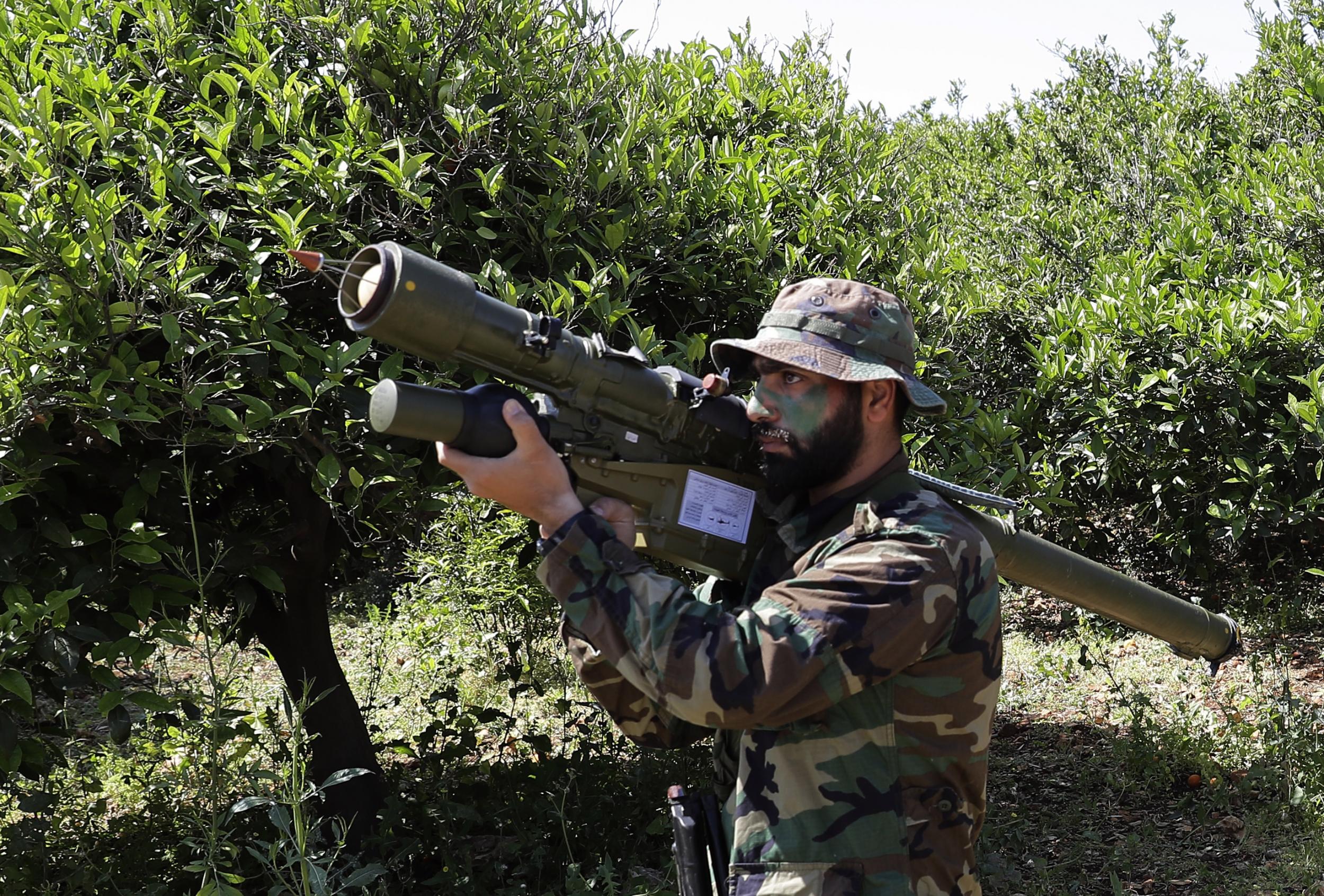Hezbollah added to UK’s list of terrorist groups
Lebanese Shia group’s military wing had previously been listed as terror group

The British government has designated Hezbollah’s political wing a terrorist organisation, amid a US push to isolate Iran and its proxies.
The UK had previously made a distinction between the Lebanese Shia group’s military and political branches, the latter of which counts 13 MPs in Lebanon’s parliament.
But following a renewed campaign by Donald Trump to pressure Tehran, it has now proscribed the whole organisation as a terror group.
“Hezbollah is continuing in its attempts to destabilise the fragile situation in the Middle East, and we are no longer able to distinguish between their already banned military wing and the political party,” home secretary Sajid Javid said Monday.
“Because of this, I have taken the decision to proscribe the group in its entirety.”
Hezbollah was founded in the early 1980s with the support of Iran, and spent much of its early existence fighting the Israeli occupation of southern Lebanon.
Following Lebanon’s devastating 1975-1990 civil war, Hezbollah was the only militia in the country which didn’t fully disarm, justifying its weapons as a necessary deterrent to another Israeli invasion.
Today, Hezbollah is the most powerful armed group in Lebanon, surpassing even the country’s national army. That military power has given it a significant influence over the government’s decision making.
In recent years, it has played a key role in the Syrian civil war, intervening on the side of its ally, Bashar al-Assad. The group said it was motivated by a desire to stop the war spreading to Lebanon, but it also sought to protect the main delivery route for weapons from Iran, and prevent a majority Sunni opposition taking power.
Policy makers in the west have watched Hezbollah’s growing strength with alarm, but the latest move appears to come in response to the group’s increasing role in Lebanon’s government.
In the country’s last elections, held in May 2018, Hezbollah’s political bloc emerged as the largest in parliament. The group named three cabinet members in the current government, two of whom belong to the organisation.
The Trump administration has introduced sweeping sanctions on Iran – which it characterises as the world’s biggest sponsor of terrorism – and its Shia proxies in the region, Hezbollah being the largest.
Key financiers and entities tied to the group have been targeted by the US Treasury in a clear effort of containment, and Mr Trump has urged other members of the UN Security Council to work with America to ensure Iran never acquires a nuclear bomb.
Earlier this month, the US ambassador to Lebanon, Elizabeth Richard, said Hezbollah was fighting in “at least three countries”, – referring to Syria, Iraq and Yemen.
“I was also very frank with the prime minister about US concern over the growing role in the cabinet of an organisation that continues to maintain a militia that is not under the control of the government,” she told reporters after meeting Lebanon’s prime minister, Saad Hariri.
Hezbollah has also become more of an issue in the UK since Jeremy Corbyn became Labour Party leader. Mr Corbyn has previously called for greater dialogue with the group.
Sami Nader, director of Levant Institute for Strategic Affairs, said the ban may affect ties between Lebanon and the UK government in the future.
“It used to be the case that European countries would distinguish between military and political wings because it offered them a certain space to manoeuvre, so it could keep dealing with Lebanon independently from its position on Iran and Hezbollah’s behaviour,” he told The Independent.
“But after the last election, Hezbollah has the upper hand in the government; it’s the number one stakeholder. The big question now is how this will impact the relationship between the UK and the Lebanese government, given that this margin of manoeuvre doesn’t exist anymore.”
There may be a material impact on the group, too, according to Phillip Smyth, a fellow at the Washington Institute and a researcher on Shia armed groups.
“Hezbollah has sent ‘political’ representatives to the UK before and its supporters would wave its banners at religious celebrations. That will now come to a halt. Fundraising, while less developed in the UK, will also be stopped,” he said.
“Regardless, Hezbollah itself never argued it had a political or military wing. Let alone that these ‘wings’ were autonomous,” he added.
The news was welcomed by Israel, Hezbollah’s greatest foe.
“All who truly wish to combat terror must reject the fake distinction between ‘military’ & ‘political’ wings,” Israeli security minister Gilad Erdan tweeted. “Now is the time for the #EU to follow suit!”
Hezbollah declined to comment when contacted by The Independent.
Join our commenting forum
Join thought-provoking conversations, follow other Independent readers and see their replies
Comments
Bookmark popover
Removed from bookmarks